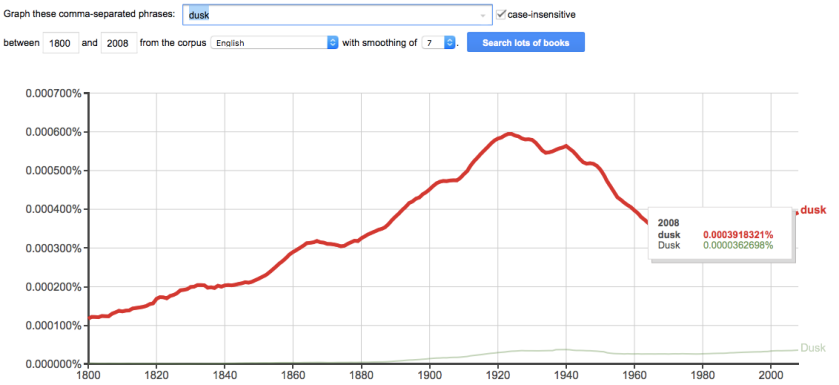
definition: the darker stage of twilight
Well isn’t that the strangest definition you’ve ever heard? I’ve always thought of dusk as the poetic cousin to sunset, but apparently that’s not the case. Research led me to Mr Reid’s really helpful blogpost, in which dawn, dusk, sunrise and sunset are systematically decoded in a wonderfully concise explanation. Basically, if this helps you: sunset > twilight > dusk > night OR night > dawn > twilight > sunrise. Apparently, dawn, dusk, twilight, sunrise and sunset are governed by their angles from the horizon. If that isn’t the way to kill off the romanticism of the words, I don’t know what else is. Still, I have a bit of an interest in physics, so this one really interests me.
Apparently, dusk can be further divided into civil dusk, nautical dusk and astronomical dusk when the top of the sun is 6, 12 and 18 degrees below the horizon respectively. As far as I can decipher, twilight refers to the period of time in which there is still light scattering in the sky after the top of the sun has passed below the horizon. In contrast, dusk is a point in time, most often the point of astronomical dusk, in which the top of the sun is 18 degrees below the horizon. It is also the darkest point of the sky just before night, and is thus accurately defined as the darkest point of twilight.
Who would’ve known such specific delineations existed? Not me, for sure!